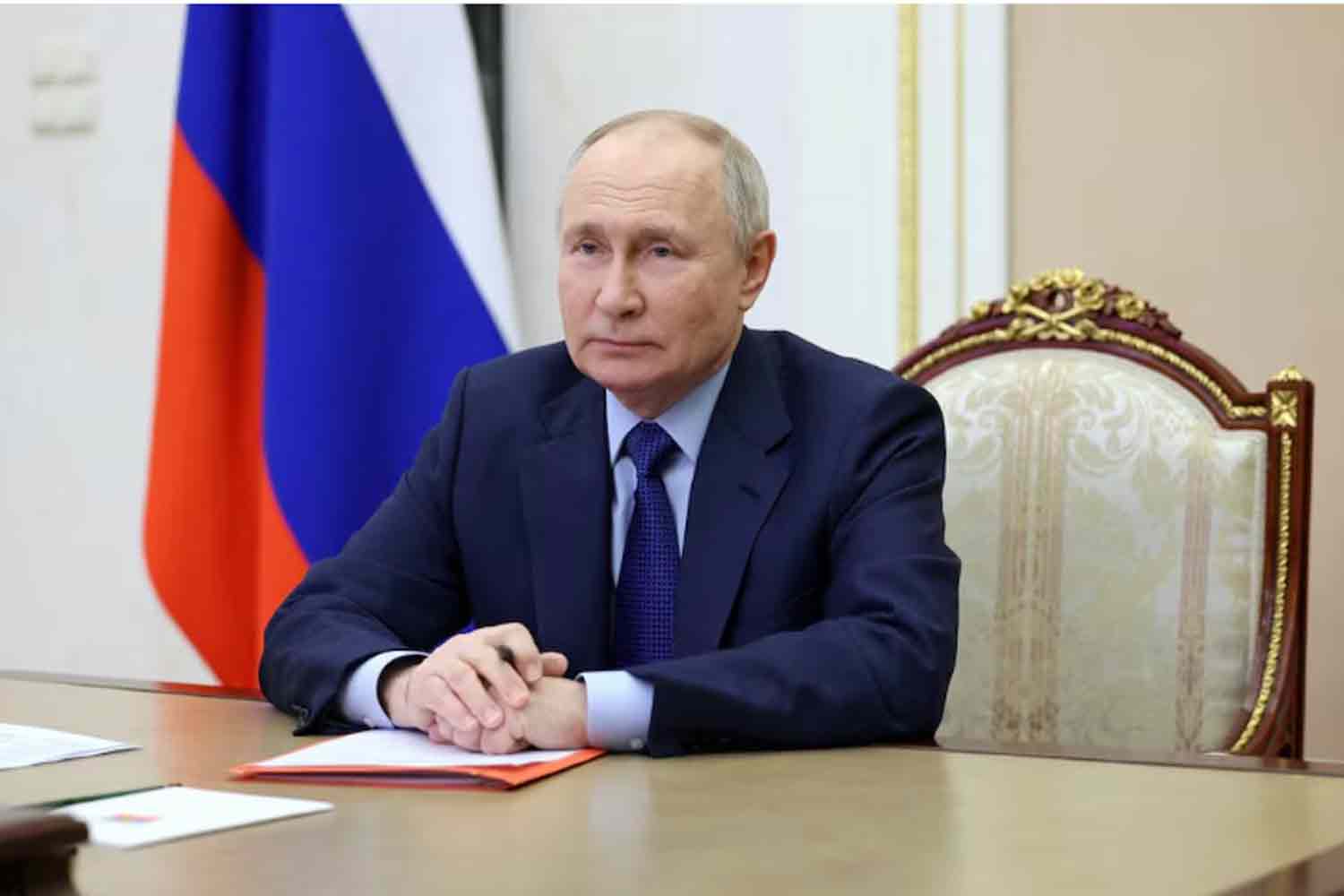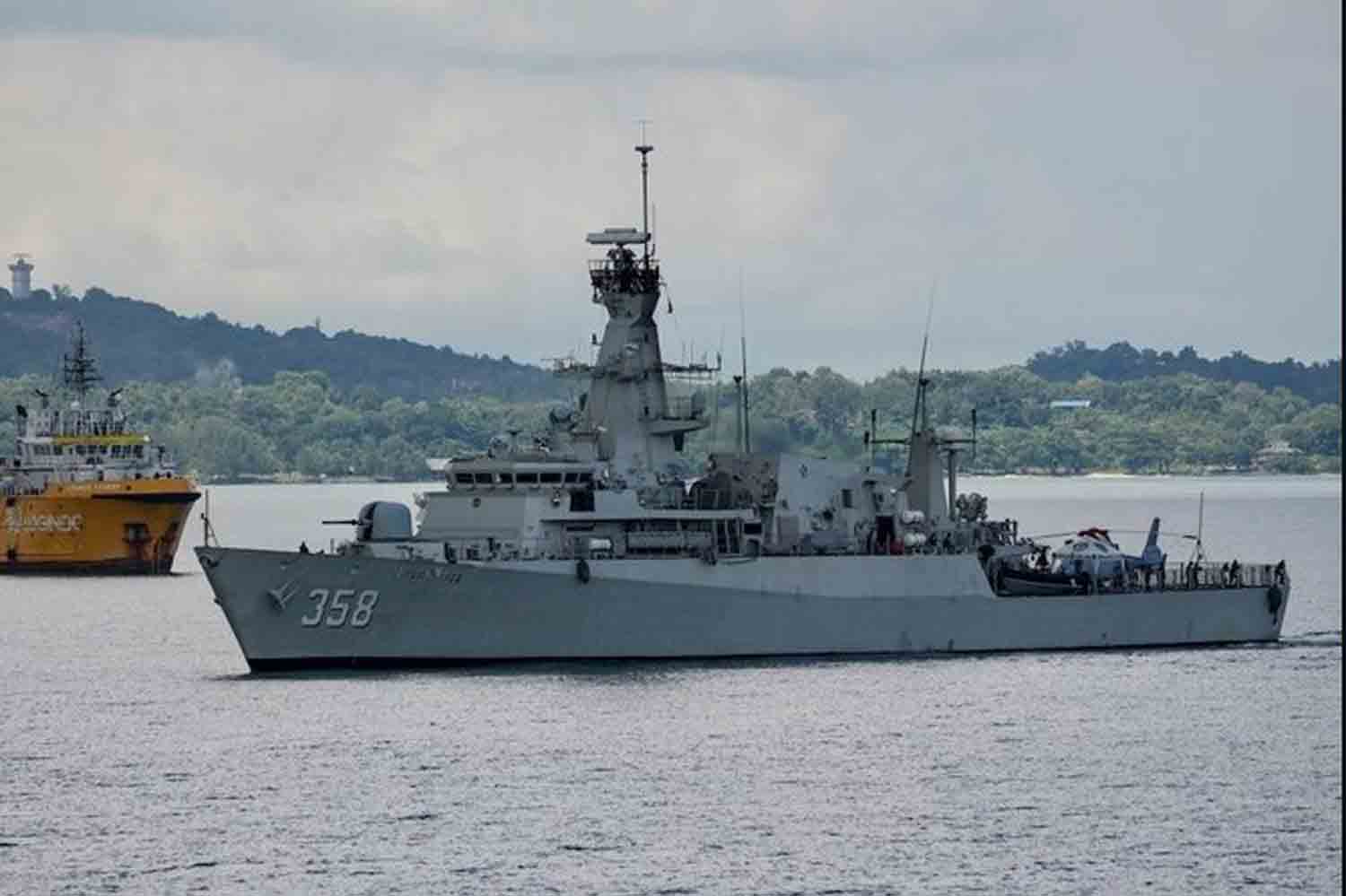Russia’s Putin is closely monitoring U.S. policy developments.
This was the message conveyed by Ukrainian President Volodymyr Zelensky during a press conference in Kyiv last week when asked about Moscow’s readiness to engage in negotiations. He stated, “It hinges on the elections in the United States.”
Should Kamala Harris be elected, she is anticipated to largely uphold the Biden administration’s policies, which have been favorable towards Ukraine, despite some areas of contention, such as the deployment of Western weaponry for strikes deep within Russian territory.
In stark contrast, Donald Trump has indicated that he would withdraw support for Ukraine’s military efforts, asserting that he could resolve the conflict “in one day.” The peace plan proposed by his vice-presidential candidate, JD Vance, bears a striking resemblance to the demands put forth by Putin.
American foreign policy stands at a pivotal moment, yet analysts caution that this may not lead to significant advancements in peace talks.
This is largely due to the absence of any indications that Russia is prepared to engage in negotiations, irrespective of the outcome of the presidential election.
Thomas Graham, a Russian foreign policy expert and distinguished fellow at the Council on Foreign Relations, stated, “It remains uncertain what [Trump] believes he can achieve or what leverage he possesses at this moment, but I doubt it will be a swift process.”
Experts suggest that a decrease in U.S. aid could lead to significant shifts on the battlefield.
Regardless of who becomes president, Putin is likely to take advantage of what he perceives as political instability in the United States, as well as “cracks in Western unity,” Graham informed CNN.
These fractures might manifest through a Trump administration’s potential reduction of U.S. aid and a diminished role in NATO, or through a divided U.S. Congress, among other elements. Additionally, financial strains on European allies and divisions within NATO, particularly with pro-Russian governments in countries like Hungary and Slovakia, contribute to this situation.
Graham further noted, “Without Western unity and a clear demonstration that the West and Ukraine share a common vision for their objectives, Putin has no incentive to alter his actions in Ukraine at this time.”
Experts contend that the complexity of the war extends beyond a straightforward negotiation between Moscow and Kyiv, framing it as a larger conflict between Russia and the West.
According to John Lough, an associate fellow in the Russia and Eurasia Program at Chatham House, “For Putin, Ukraine serves merely as a tool to achieve the broader goal of diminishing U.S. influence in global affairs.”
Lough added that when Trump’s advisors clarify the situation, particularly regarding China’s crucial role in supporting Russia’s ongoing military efforts, Trump may find himself less inclined to support Putin. He cautioned that any concessions made could be interpreted by Beijing as a sign of U.S. weakness, which contradicts Trump’s assertive stance on the threat posed by China.
Attritional warfare is benefiting Putin
Ukraine is currently outnumbered, and Putin seems willing to endure significant casualties. NATO reports indicate that over 600,000 Russian soldiers have been killed or injured.
“The enemy is reinforcing its forces to push the Ukrainian Armed Forces out of the Kursk region at any cost,” stated Oleh Shiryaev, commander of the 225th Separate Assault Battalion engaged in Ukraine’s unexpected incursion across the Russian border. “Russia’s primary advantage in this conflict is its troop numbers—these are substantial assaults and offensive maneuvers. They are executing this strategy across all sections of the frontline.”
In the Zaporizhzhia region, another commander from the Security Service of Ukraine remarked, “By deploying a large number of personnel as expendable resources, they aim to establish a presence in the contested areas of the front.” The officer, who requested anonymity and goes by the call sign “Bankir,” meaning accountant, informed CNN that a sophisticated network of fortifications in Zaporizhzhia is aiding Ukraine in defending its positions.
However, Kyiv recognizes that this alone is insufficient. On Wednesday, Ukraine’s Parliament voted to prolong martial law and the draft for an additional 90 days, with plans to mobilize an extra 160,000 individuals, as announced by the National Security Council.
Ukrainian servicemen interviewed by CNN highlighted that Russia possesses several advantages, including a vast array of drones, high-cost aircraft, and a greater number of vehicles, which facilitate operations during the challenging muddy conditions of fall and winter.
According to these servicemen, Ukraine requires additional support for both its infantry and its supply of equipment.
“We have ammunition, but as our artillery units often remind us, it is never sufficient,” stated Vitaliy Milovidov, spokesman for the 15th Brigade National Guard, who is currently engaged in combat in the eastern Donetsk region, where Russian forces are steadily advancing.
Should a potential Trump administration decide to reduce US aid, Ukraine would find itself increasingly outmatched.
In response, European countries are working urgently to boost ammunition production for Ukraine to mitigate any setbacks that might arise from a decrease in US support.
However, even if US policy remains consistent, it seems that Kyiv’s Western allies are not prepared to provide the level of resources necessary for significant advancements on the battlefield.
Chatham House’s Lough expressed, “I suspect this situation will persist, potentially at a diminished intensity, but over an extended period. A Harris administration would certainly not abandon the Ukrainians; however, it would significantly challenge their determination and willingness to sustain this protracted conflict.”
This is why Putin’s approach seems designed to undermine the morale of the Ukrainian populace.
Russia has consistently targeted civilians and civilian infrastructure, severely damaging Ukraine’s energy grid. This has intensified the hardships faced by ordinary Ukrainians, who are now confronted with a winter lacking adequate heating and water.
Experts indicate that while the Ukrainian population is undoubtedly fatigued, they do not seem inclined to capitulate. Following the horrific mass killings in Bucha and Mariupol, the cruel treatment of Ukrainian prisoners in Russian custody, and the forced deportation of Ukrainian children, they are acutely aware of the harsh realities of Russian occupation.
Meanwhile, Zelensky continues to seek support from both political parties. He remarked on Thursday that if Trump aims to compel Ukraine to concede everything for a deal with Russia, he believes that outcome is unattainable.
Discover more from Defence Talks | Defense News Hub, Military Updates, Security Insights
Subscribe to get the latest posts sent to your email.





